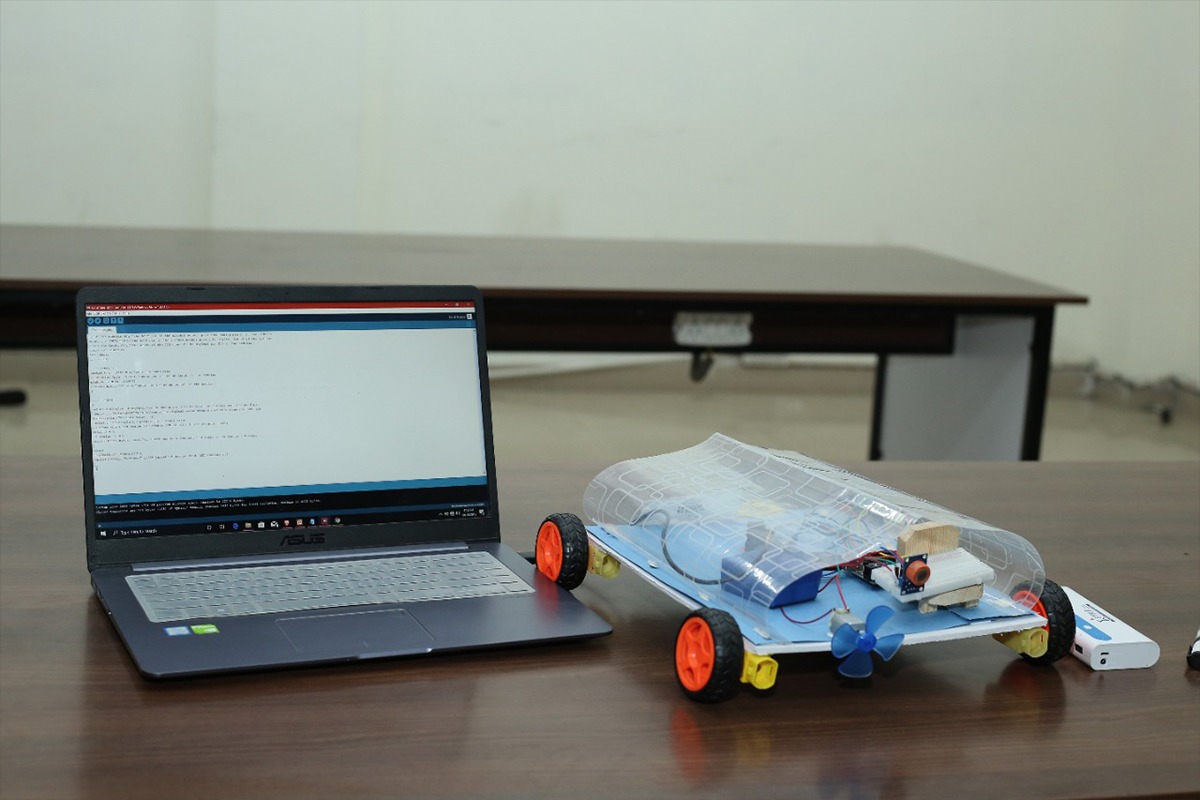A staggering number of young lives are lost in school bus accidents in India due to reasons ranging from drunken driving to technical glitches. Hardly a day passes when we do not read reports about kids being killed in road accidents while being ferried to school. As many as 16 kids were killed in Andhra, 23 in Himachal, 8 in Telangana, and most recently – 5 students in Kerala’s Palakkad.
The main reasons behind such incidents are alcohol consumption by the driver, over-speeding, dislocation of wheels or another technical malfunction. Taking into account rising cases of fatal accidents, researchers at Lovely Professional University (LPU) have developed a system to avert such mishaps.
Researchers at LPU have developed a smart safety system using advanced Internet of Things (IoT) technology, which lets the school administration and parents monitor in real time the speed of the bus, the condition of the bus and the status of its driver.
As per the researchers involved in the development, parents can get real-time information about the bus on their mobile application. Unlike its contemporaries, LPU’s solution does not use Wi-Fi and the internet to transmit data, but instead, it uses LoRa (long range) communication technology.
“The use of LoRa communication technology makes this safety system suitable for even remote and hill areas that don’t have either patchy and almost no connection,” Prof. Amit Kumar Thakur, head of LPU’s aerospace department, told The New Indian.
Speaking about the USP of the solution, an official of LPU said: “The existing technologies require internet/Wi-Fi connectivity which at times faces connectivity issues. Thus the connectivity of the LoRa device without any internet/Wi-Fi facility is the USP of the device as well as makes it unique amongst the existing technologies available in the market.”
The system consists of a plurality of safety motes, a data transmission mote, a cloud server, and a mobile application. The data transmission mote receives sensory data from the safety motes through LoRa communication. It uses a speed sensor to measure the speed of the vehicle, an ultrasonic sensor that senses the alignment of wheels and an alcohol sensor which senses the presence of alcohol in the driver’s body.
The system senses, analyses and alerts authorities in order to prevent mishaps, according to LPU officials.
The system can also be configured in a way that it sends the collected data to a cloud server which can be accessed by parents and school authorities using the mobile application.
It functions smoothly in an average area of around a 15 km radius.
Not just school buses, the system can be integrated into any vehicle of any individual or organisation for enhanced safety.
“The device is in particular useful to schools and universities as well as for the cab services providers for the safety and security of women employees or women travellers,” Thakur informed.
Once it hits the market, the device will be available for users for Rs 8000 per unit. The cost of the gateway covering an average radius of 10-15 km would cost Rs 20,000.
The device, for which LPU has already received a patent in Australia, can be developed in a period of six months.









